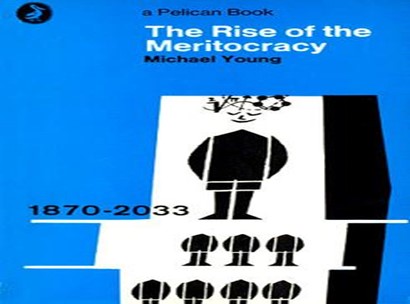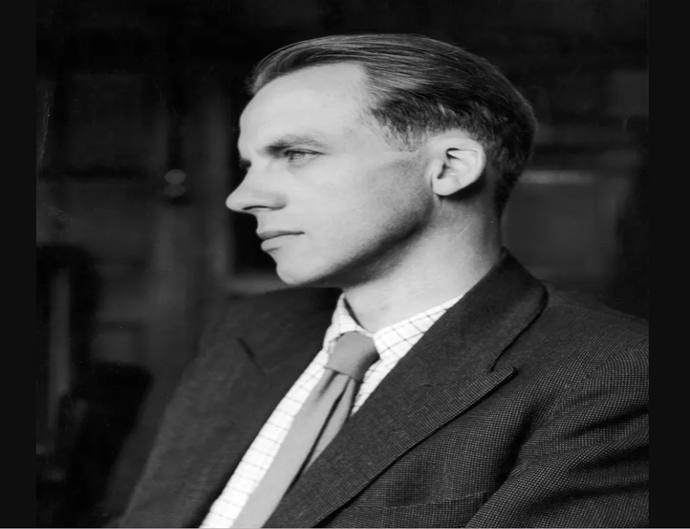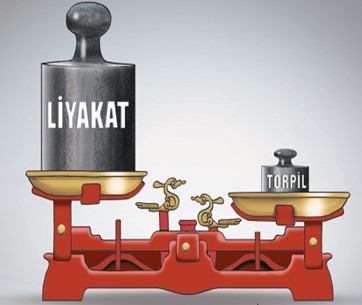EMERGENCE OF THE MERITOCRACY CONCEPT
The concept of meritocracy first appeared in the book "The Rise of the Meritocracy; 1870-2033" written by Michael Young in 1958. According to Young, the origin of this concept is as uncertain and obscure as the concept of equal opportunity. Its initial usage seems to be generally traced back to the 1860s in a few publications associated with the Labour Party. The term, formed by the combination of "merit" and "cracy," implies the ability of the meritorious to attain power.
It is believed that the first meritocratic practices were introduced in Germany under the initiatives of King Frederick I of Prussia. This is because Frederick I made several practices and conditions, such as making legal education mandatory and implementing exams for entry into state bureaucracies, compulsory. Although the term meritocracy is widely accepted to have been first used by Michael Young in 1958, it actually appeared two years earlier in an article titled "Class and Equality" written by Alan Fox in the Socialist Commentary magazine. The magazine, initially published weekly, was issued by a political group within the left wing of the Labour Party in the UK. Fox's article was a sociological summary of ideologies, social tools, and policies causing class divisions. Meritocracy meant abuse to Fox, who sought more equality. His article presented a socialist argument against the necessity of meritocracy. Therefore, when the term meritocracy was first used by socialists, it was not universally accepted in a positive sense, as it is today, but rather was used negatively.

YOUNG'S DEFINITION
YOUNG'S DEFINITION
In Young's book, meritocracy is explained through the formula that combines intelligence and effort equals merit, while today, skill or merit encompasses talent, education, and experience as well. The book presents meritocracy as an ideology or organizational principle. In contemporary times, meritocracy can be defined as the reliance on a merit-based system in personnel employment, and it is often understood in this way. Meritocracy is a characteristic of modern and egalitarian societies, distinguishing them from privileged societies by creating a sort of aristocracy of talents. Meritocratic principles, which have become a fundamental element in the struggle against inherited and collective privileges, constitute the basis of social stratification in modern society. The realization of meritocracy is not possible in pre-modern societies due to the dominance of other social ties. Over time, meritocracy has gained a positive connotation in Western societies and has been associated with concepts such as capitalism, egalitarian values, political ideology, or the American Dream.
Building on Young's definitions, the two essential features required for the existence of meritocracy are impartial competition and equal opportunity. Without equal opportunity, the envisioned society cannot be achieved. In an ideal meritocratic society, it is possible to bring about social mobility through an open and transparent system that reduces potential decay. The core principles of meritocracy are social mobility and equal opportunity. Equal opportunity stems from the idea of a societal structure that provides a free field for all talents. If impartial competition and equal opportunity are ensured, every individual can attain the profession and status they deserve based on their intelligence and effort. Professions and statuses should be open to individuals from all skilled backgrounds, leading to social mobility. Meritocracy, in another definition, is a social system based on the idea that individuals, through hard work, are responsible for using their talents, and each person included in the majority will reach a socially suitable and rewarding position. It also describes the social harmony that will be achieved when individuals can work in jobs that align with their natural abilities.

NEGATIVE ASPECTS OF MERITOCRACY
Meritocracy is an ideology that aims to establish a just order in the sharing of societal resources by guaranteeing those who use their talent and effort, or the deserving individuals, the right to have a position in which they are competent, through the recognition of equal opportunities for everyone. Simultaneously, it ensures the proper execution of tasks and societal productivity by assigning tasks to the qualified. Despite being a desirable ideology and a set of foundational principles for a system, meritocracy comes with certain drawbacks. According to Jonathan Mijs and Mike Savage, income and wealth inequality have increased precisely when meritocracy became the guiding political principle. Therefore, meritocracy is considered an elitist project since it ensures the success of the talented and elite, disregarding other segments of society. It becomes a project for the elite. Additionally, Mijs and Savage argue that meritocratic ideas are not against inequality, but only against discrimination. While providing equal opportunities for everyone to achieve equal chances in society, in the end, not everyone benefits equally from the sharing of societal resources; each person receives their share as deserved. Hence, meritocracy can be described as a form of socialism attempting to equalize the national society.
For some, meritocracy serves to perpetuate inequality among social groups, thereby strengthening hierarchy. Those with status, power, and wealth receive their due rewards, while the weak draw their own destinies due to their inadequate efforts. The meritocratic idea is thus seen as compatible with the Protestant work ethic, which believes that hard work leads to success. However, guaranteeing equal 
competition among all segments of society is challenging. It is impossible to claim that individuals born and raised in segments that receive a higher
share of resource distribution are in equal competition with those raised in the opposite situation. Therefore, it can be said that meritocracy rejects
equal competition between the elite and other individuals. Thus, meritocracy may be considered a threat to equality as it legitimizes the dominance
of a minority in governance and society, ensuring the sovereignty of the elite. According to the narrative of Son-hoor Tan, although the elite may
believe in the basic or intrinsic equality of humans, as advocated by some classical liberal political philosophers like John Locke, it can be argued
that they are opposed to objective competition between themselves and other individuals. In other words, it is evident that the elite will not engage in
objective competition.
An example of how meritocracy increases stratification in society and serves as an obstacle to meritocratic idealism is when individuals, upon
reaching the pinnacle, prioritize preserving their own subordinates. This is most evident in the field of education. Meritocracy, being a system based
on individual success, places education at its core. Education is also one of the elements used in the evaluation process in meritocracy. Meritocracy
anticipates that ensuring equal opportunities in education will lead to social justice. However, ensuring equal opportunities in education does not
eliminate all types of inequality and disadvantage passed down from the past, such as economic hardships passed on to subsequent generations.
Climbing the ladder may be more challenging for some individuals compared to others. Meritocracy neglects this reality.
MERITOCRACY IN POLITICS
The Meritocracy Party in the United Kingdom has published a manifesto consisting of five points, which will help provide a clearer understanding of the concept of meritocracy:
Keywords: Meritocracy, Politics, Michael Young, Merit, Chance, Elite, Impartial Competition, Equality
References: https://dergipark.org.tr/en/download/article-file/2645344
Orhan Açıkgöz
Yücel Cultural Foundation
Voluntary Author
translated by Ekremcan Bakır
YKV Content:1542